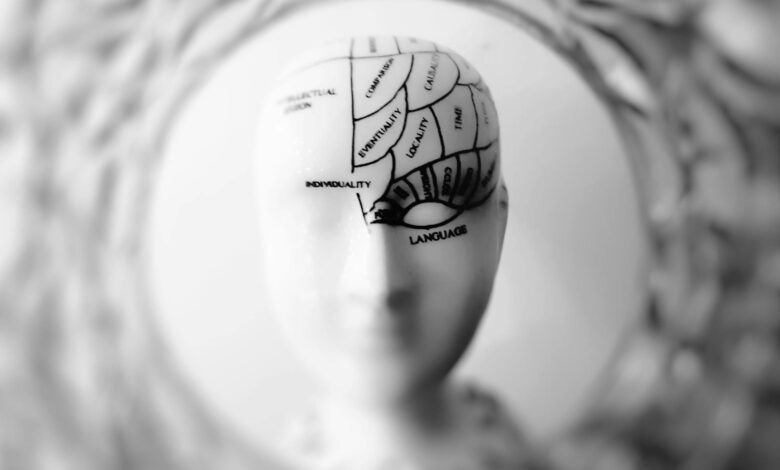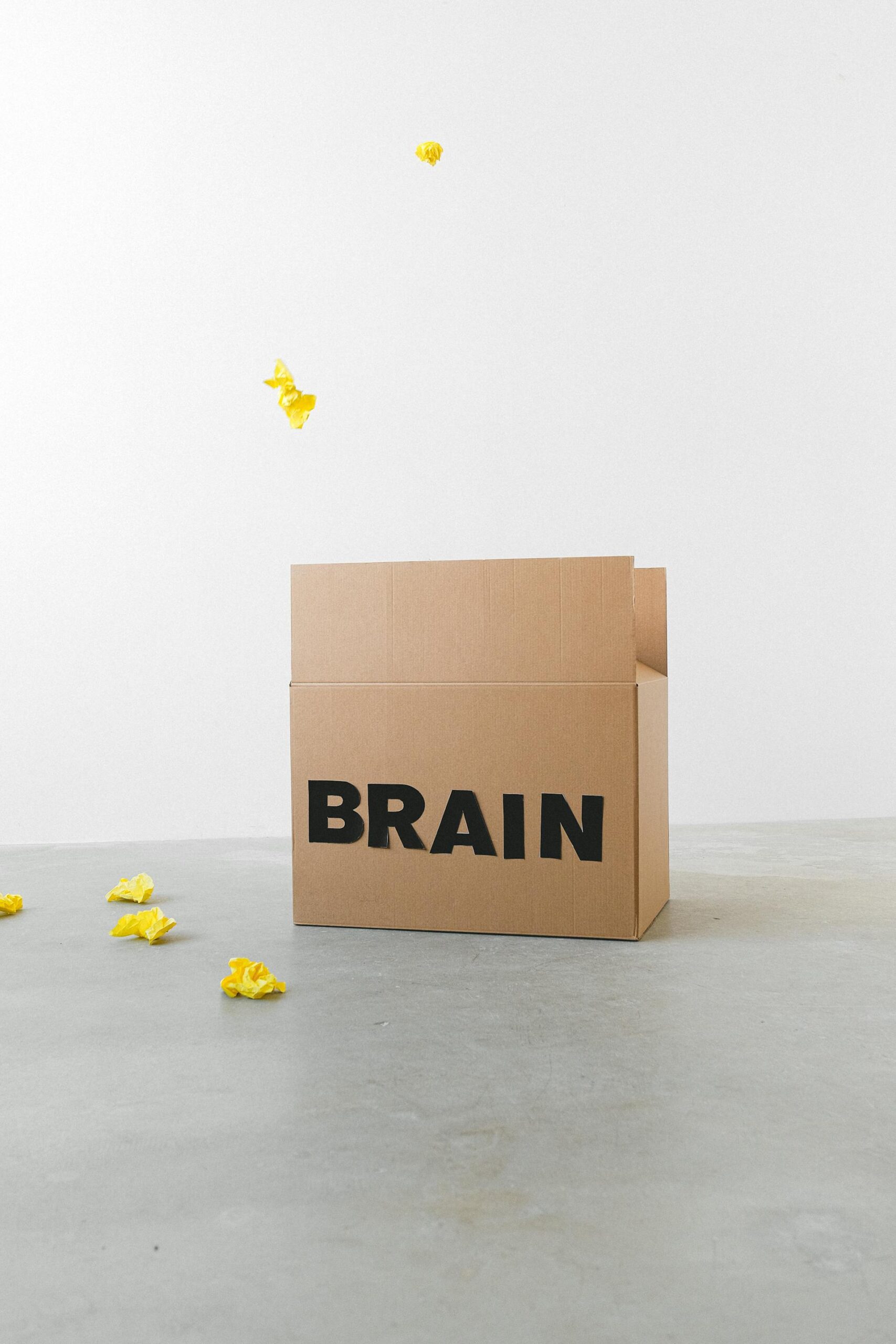Understanding Cognitive Functions: Unleashing Your Mental Potential

The Different Types of Cognitive Functions
Cognitive functions can be broadly categorized into four main types:
- Perception: This function encompasses our ability to take in and process sensory information, such as sight, sound, touch, taste, and smell. It allows us to make sense of the world around us and form a coherent understanding of our environment.
- Attention: Attention is the cognitive function that enables us to focus our mental resources on specific stimuli or tasks, while filtering out irrelevant information. It is crucial for tasks that require concentration, problem-solving, and decision-making.
- Memory: Memory is the cognitive function that allows us to store, retain, and recall information. It is essential for learning, problem-solving, and the development of knowledge and skills.
- Reasoning: Reasoning is the cognitive function that enables us to analyze information, draw logical conclusions, and make informed decisions. It involves processes such as inductive and deductive reasoning, as well as critical thinking.
Understanding the unique characteristics and interplay of these cognitive functions can provide valuable insights into our individual strengths, weaknesses, and cognitive preferences.
Also read: Living with Post-Traumatic Stress Disorder: A Comprehensive Guide
How Cognitive Functions Impact Our Thinking and Behavior

Cognitive functions play a pivotal role in shaping our thought processes, decision-making, and overall behavior. The way we perceive information, focus our attention, store and retrieve memories, and reason about the world around us directly influences our actions, responses, and the way we navigate through life.
For example, individuals with a strong perceptual function may be highly attuned to their sensory experiences, making them adept at tasks that require keen observation and attention to detail. On the other hand, those with a dominant reasoning function may excel at problem-solving, strategic planning, and analytical tasks.
Understanding the interplay between cognitive functions and their impact on our thinking and behavior can provide valuable insights into our personal strengths, weaknesses, and preferences. This knowledge can then be leveraged to enhance our decision-making, problem-solving, and overall effectiveness in various areas of life.
Understanding Your Dominant Cognitive Function
Each individual has a unique cognitive profile, with certain cognitive functions being more dominant or well-developed than others. Identifying your dominant cognitive function can offer profound insights into your natural inclinations, learning styles, and problem-solving approaches.
To determine your dominant cognitive function, consider the following questions:
- Which tasks or activities do you find most engaging and enjoyable?
- In what areas do you consistently excel or demonstrate a natural aptitude?
- What types of information or stimuli tend to capture your attention the most?
- How do you typically approach problem-solving or decision-making situations?
By reflecting on these questions and observing your own thought patterns and behaviors, you can gain a better understanding of your cognitive function preferences. This self-awareness can then serve as a foundation for developing and strengthening your cognitive abilities.
Developing and Strengthening Cognitive Functions
While we all have a dominant cognitive function, it is important to recognize that our cognitive abilities are not fixed. Through intentional practice and targeted exercises, we can actively develop and strengthen our cognitive functions, unlocking new levels of mental potential.
Here are some strategies for developing and strengthening cognitive functions:
- Engage in Cognitive Exercises: Regularly challenge your mind with activities that target specific cognitive functions, such as memory games, problem-solving puzzles, or mindfulness practices.
- Embrace Novelty and Exploration: Expose yourself to new experiences, ideas, and perspectives to stimulate different cognitive functions and expand your mental horizons.
- Practice Focused Attention: Develop your ability to concentrate and sustain attention by engaging in tasks that require prolonged focus and mental effort.
- Incorporate Physical Activity: Regular physical exercise has been shown to enhance cognitive functions, particularly those related to memory, attention, and executive functioning.
- Cultivate Lifelong Learning: Continuously seek out opportunities to learn new skills, acquire knowledge, and engage in intellectually stimulating activities.
By consistently implementing these strategies, you can nurture the growth and development of your cognitive functions, ultimately leading to enhanced mental capabilities and a greater sense of self-awareness.
Also read: Understanding and Managing Mood Swings: Your Guide to Emotional Balance
The Benefits of Improving Cognitive Functions

Enhancing your cognitive functions can unlock a vast array of benefits, both in your personal and professional life. Here are some of the key advantages:
- Enhanced Problem-Solving and Decision-Making: Stronger brain functions, such as reasoning and attention, can improve your ability to analyze information, identify patterns, and make well-informed decisions.
- Improved Memory and Learning: Developing your memory and perceptual abilities can enhance your capacity to retain information, learn new skills, and recall relevant knowledge when needed.
- Increased Creativity and Innovation: Expanding the reach of your cognitive functions can foster divergent thinking, allowing you to generate novel ideas, explore alternative perspectives, and approach challenges with a fresh mindset.
- Better Emotional Intelligence and Self-Awareness: Understanding your cognitive preferences and strengths can contribute to a deeper understanding of your own thought processes, emotions, and behavioral tendencies, leading to greater self-awareness and emotional intelligence.
- Heightened Adaptability and Resilience: The ability to flexibly apply different cognitive functions can enhance your capacity to navigate complex situations, adapt to changing circumstances, and overcome challenges with greater ease.
By embracing the development of your cognitive functions, you can unlock a world of personal and professional growth, empowering you to reach new heights of achievement and fulfillment.
Practical Exercises to Enhance Cognitive Functions
Engaging in targeted exercises and activities can be a powerful way to enhance your cognitive functions. Here are some practical exercises to consider:
- Memory Exercises:
- Memorize and recall lists of items, names, or numbers
- Practice visual memory by observing and recalling detailed images
- Engage in brain-teasing puzzles and games that challenge your memory
- Attention and Focus Exercises:
- Practice mindfulness meditation to improve your ability to maintain focused attention
- Engage in timed concentration tasks, such as reading comprehension or problem-solving
- Limit distractions and multitasking to train your ability to sustain attention
- Reasoning and Problem-Solving Exercises:
- Solve logic puzzles, riddles, and brain teasers
- Engage in strategic board games or online challenges
- Practice critical thinking by analyzing complex problems and generating multiple solutions
- Perceptual Exercises:
- Observe your surroundings with heightened awareness, noting details and patterns
- Engage in sensory awareness exercises, such as mindful tasting or touch exploration
- Experiment with different creative mediums, such as drawing or painting, to enhance your visual perception
- Lifelong Learning Exercises:
- Explore new hobbies or skills that challenge your cognitive abilities
- Read books or articles on topics outside your usual interests
- Participate in educational workshops, courses, or online learning platforms
Incorporating a variety of these exercises into your daily routine can help you develop a well-rounded cognitive profile, empowering you to tackle challenges, expand your knowledge, and unlock your full mental potential.
Applying Cognitive Functions in Daily Life
Cognitive functions are not limited to academic or professional settings; they play a crucial role in our everyday lives. By understanding and applying cognitive functions in our daily activities, we can enhance our overall effectiveness, decision-making, and personal growth.
Here are some ways to apply cognitive functions in daily life:
- Productivity and Task Management: Leverage your attention and memory functions to prioritize tasks, create effective to-do lists, and maintain focus on important projects.
- Interpersonal Relationships: Utilize your perceptual and reasoning skills to improve communication, empathy, and conflict resolution in your personal and professional relationships.
- Healthy Habits and Lifestyle Choices: Apply your cognitive functions to establish and maintain beneficial routines, such as exercise, healthy eating, and stress management.
- Lifelong Learning and Personal Development: Engage your cognitive functions to continuously expand your knowledge, acquire new skills, and pursue personal growth opportunities.
- Problem-Solving and Decision-Making: Harness your reasoning and analytical abilities to tackle complex problems, make well-informed decisions, and navigate life’s challenges with confidence.
By integrating cognitive function awareness and exercises into your daily life, you can unlock new levels of productivity, self-awareness, and overall well-being.
Cognitive Functions and Personal Growth
The journey of understanding and enhancing cognitive functions is deeply intertwined with personal growth and self-discovery. As you explore the nuances of your cognitive preferences and abilities, you unlock valuable insights into your unique strengths, weaknesses, and learning styles.
This self-knowledge can serve as a powerful catalyst for personal development, empowering you to make more informed decisions, cultivate meaningful relationships, and pursue fulfilling personal and professional goals.
Furthermore, the process of developing and strengthening cognitive functions can foster a growth mindset, instilling a sense of agency and the belief that you can continuously expand your mental capabilities. This mindset can translate into increased resilience, adaptability, and a willingness to step outside your comfort zone, ultimately leading to greater personal and professional success.
By embracing the exploration of cognitive functions, you embark on a journey of self-discovery and empowerment, unlocking your true mental potential and paving the way for a more fulfilling and purposeful life.
Conclusion: Embracing Your Mental Potential
In the dynamic and ever-evolving world we live in, the ability to harness the power of our cognitive functions has become increasingly crucial. By understanding the different types of cognitive functions, recognizing our dominant traits, and actively developing our mental capabilities, we can unlock a world of possibilities.
This journey of cognitive exploration not only enhances our problem-solving abilities, decision-making skills, and overall effectiveness but also fosters a deeper sense of self-awareness and personal growth. As we embrace the transformative potential of our cognitive functions, we empower ourselves to navigate life’s challenges with greater ease, cultivate meaningful relationships, and ultimately, reach new heights of personal and professional fulfillment. Ready to unlock your full mental potential?




